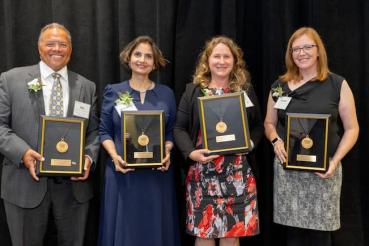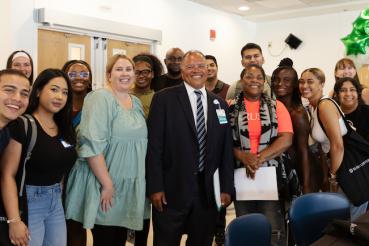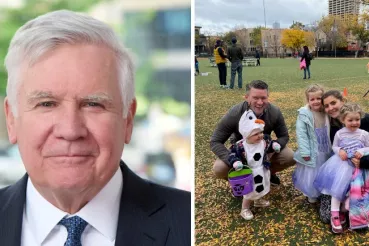Ye Rim Noh struggled to find a medical school that was supportive of her situation, financially viable and a good fit — until she found Rush.
As a Deferred Action for Childhood Arrivals, or DACA recipient, Noh — who has long dreamed of becoming a doctor — found her options limited when it came to medical schools that would accept her. Most schools don’t talk about DACA, let alone offer financial support. Before coming to Chicago, Noh had never met another DACA student applying to medical school. Then, Rush sponsored a DACA town hall.
“That really stood out to me and played a big part in why I wanted to come here,” she said. “I felt like that would really help me form a community here. Rush is the school I felt most supported at, even before I interviewed or was admitted.”
Noh, whose family immigrated to the U.S. from South Korea when she was 18 months old, had never been to Chicago until her initial visit to Rush. Moving to the city, so far from her family in Louisiana, was a big change.
“It’s hard to do it alone, especially if you’ve just moved here, don’t know anyone here and have no family here,” she said. “Even from the start, I’ve never felt like that. I’ve never felt alone.”
Noh attributes her ability to seamlessly adjust to the strong sense of community she found at Rush.
“There’s been a lot of support and community here,” she said. “It’s been so easy to find community, with faculty and other students and even within the city. I’ve really enjoyed it.”
Overcoming financial barriers
While many students incur significant debt while pursuing a medical education, the financial obstacles are even more challenging for DACA students, who are ineligible for federal funding. Noh was determined to overcome those barriers.
“Getting a scholarship was vital to me,” she said. “It was a big deciding factor in where I went to school. I wanted to find a medical school that would not only say they support me but also show that.”
Rush delivered, providing Noh with a Med Staff for Med Students scholarship, which covers half her tuition for all four years of medical school. The scholarships are funded by Rush’s medical staff.
“It really helps people who are economically marginalized to get into the field of medicine,” Noh said. “The funding is vital to someone like me who has done everything to achieve their dream, especially if it’s the final barrier they face.”
Now, Noh has found the community and support to pursue her passion for medicine.
“Medicine offers this beautiful intersection of the science that I love, along with talking to people, making relationships all day, every day, and just being a big part of people’s lives,” she said.
Giving back to the community
When Noh has free time outside of classes and studying, she loves exploring Chicago, trying new foods and going to baseball games. She also enjoys volunteering with the Chicago Recovery Alliance and the Creating Pathways and Access for Student Success Foundation Mini Medical School at Rush University Medical Center.
Though she has not yet settled on a specialty, Noh seeks to serve economically marginalized communities. She previously had an opportunity to do so while working at a pediatric clinic in Shreveport, Louisiana, that mainly served patients who were uninsured or using Medicaid.
“I enjoyed the perspective that experience gave me,” she said. “It made me think about barriers to health care I’d never considered before.”
Wherever she ends up, Noh will always remember those experiences and the opportunity she has found at Rush.
“I just hope I can give back to Rush as much as Rush has given to me,” she said.
To help medical students like Ye Rim achieve their dreams, please consider supporting Med Staff for Med Students.




